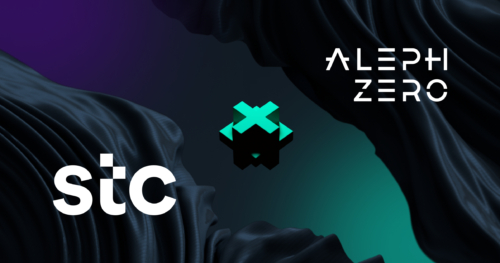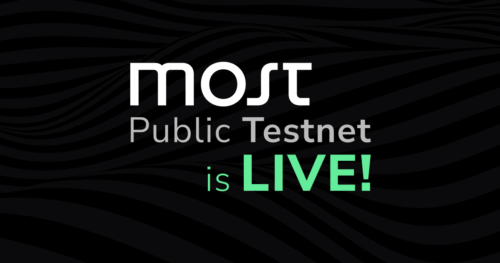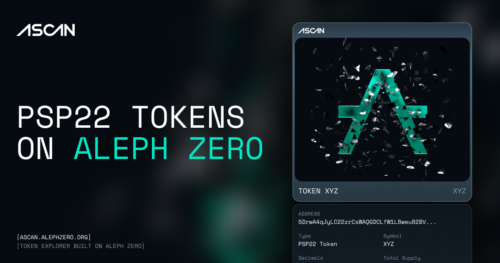Monetizing Space Exploration Through Blockchain
Oct 4, 2022
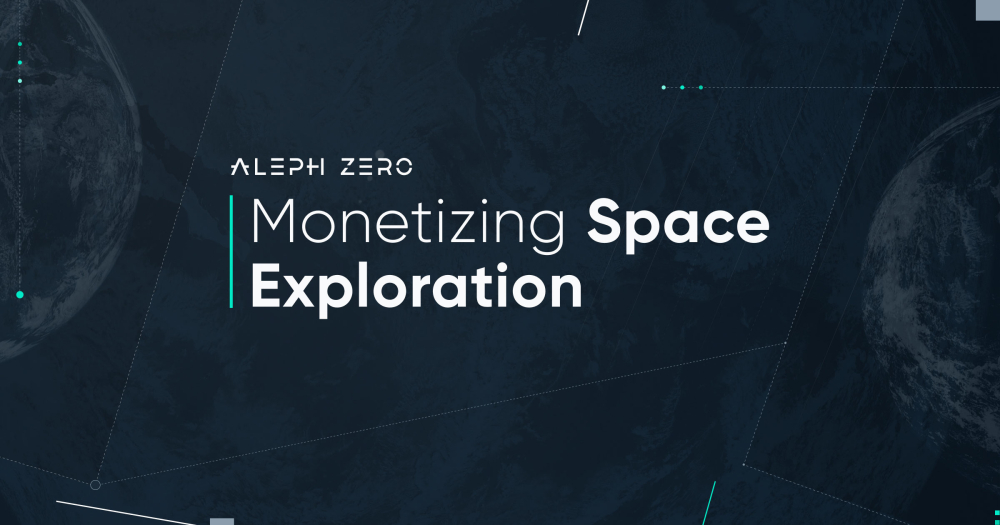
A new space race is upon us as the private sector enters the realm of space exploration, leading us to think about what role blockchain technology and Aleph Zero can play in this dynamically evolving industry.
One of the main hurdles that have always slowed down any attempt by humanity to research the cosmos involved acquiring the funds necessary to leave Earth’s orbit. As we enter the third decade of the 21st century, distributed ledger technology promises new funding models that could jumpstart the new space race as both national and private enterprises are sure to benefit. When analyzing the potential for blockchain applications in space exploration, it is important to realize that many of the use cases we are discussing are still in the hypothetical stage, as the private space industry, similar to the blockchain industry, is a relatively recent development.
Regardless of this fact, there is considerable potential for growth in this area as both the ambitions of blockchain startups and private space agencies intersect as the space sector is en route to becoming a trillion-dollar industry by 2040.
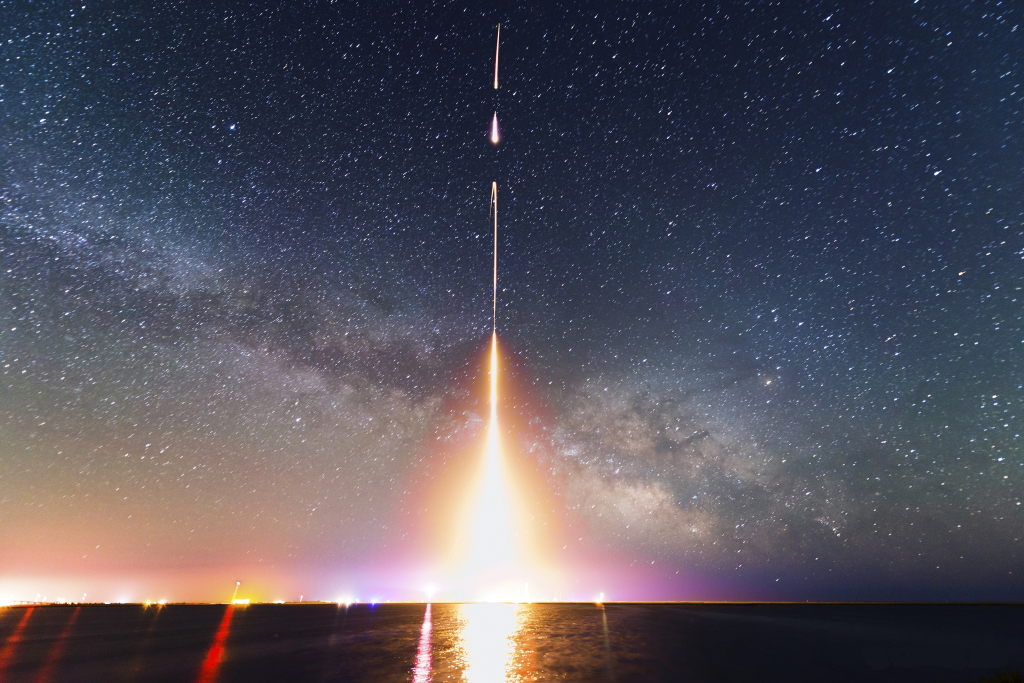
Streamlining Access to Capital
One of the elements responsible for the blockchain industry’s dynamic growth is the initial coin offering (ICO). As of now, ICOs are an unregulated practice that, instead of purchasing shares, revolve around interested parties buying coins or tokens offered by the crypto project. ICOs have given the cryptocurrency industry access to entire swathes of the population interested in propping up their chosen blockchain project in return for the promise of utility offered by the coin/token or the potential for the digital asset to appreciate.
The concept of the ICO transferred to the world of space travel has considerable potential as it will allow startups to complement the tedious funding practices of traditional finance in favor of the dynamic ICO model. Several areas have been identified that can benefit from following a utility token model, including data monetization, asset monetization, and tokenizing space resources.
Data Monetization
One of the first use cases suggested for the burgeoning blockchain scene to tackle with regard to space travel involves monetizing the data collected during missions.
Both crewed and crewless flights into the cosmos generate impressive amounts of data that can be further used to generate revenue. This data can be stored on a distributed ledger and made accessible to third parties through utility tokens. The income generated from the sale of information collected over numerous missions can be used to fund further research and projects. Additionally, this approach enables a collaborative ecosystem of private companies that can benefit from the shared information.
For example, in 2019, SpaceIL was the first private company to send a lander to the moon. Such missions are ripe with valuable information that, in the future, could be easily monetized and employed for the benefit of both private and national space agencies. SpaceIL’s mission proved ultimately unsuccessful, but even such setbacks can be repurposed in this fashion as failed attempts also generate valuable insights that can help recuperate potential losses in such a high-risk business as the aerospace industry.
Democratizing Space Through Fractional Ownership
The tokenization of assets associated with space exploration is another potential use case for melding distributed ledger technology with the aerospace industry. Asset Tokenization involves creating a digital token representative of a specific good, anything from a physical object to something intangible, such as a kilowatt of energy. Once tokenized, the property can be moved, recorded, or stored on a distributed ledger and be subject to all the qualities associated with digital tokens. Tokens that are backed by an asset are dubbed “asset-backed tokens” or “security tokens” and act as a claim to the represented property.
Another layer of complexity is added when we take into account the possibility of fractional ownership. This makes it possible for novel crowdfunding campaigns that can offer investors partial ownership of landers, satellites, and potentially the heavenly bodies themselves. Although an interesting idea, we must remember that fractionalized NFTs are currently under scrutiny by regulatory bodies, and a clear path forward has not yet been defined.

The blockchain firm ConsenSys made headlines in 2018 when it acquired Planetary Resources, a company whose ambitions revolved around the promise of introducing commercial mining on asteroids. The blockchain-based solutions currently employed by land registries on Earth can be later adapted for asteroids and moons as we finally develop the technology to take advantage of the abundant resources floating in the cosmos. Land registry systems built upon blockchain technology provide a revolutionary way to eliminate inefficiencies associated with current systems by removing the need for intermediaries while automating workflows and decreasing the time needed to process such requests.
Earth Observation
Another growing industry that has significant growth potential involves Earth Observation (EO), a dynamically evolving sector that involves using remote sensing technologies to collect information on the planet’s physical, chemical, and biological systems and to monitor land, water (i.e., seas, rivers, lakes), as well as the atmosphere. One of the methods used to collect this data involves using satellites to gather data on Earth’s qualities. This technological solution has proven to be quite adept at monitoring and identifying changes and patterns for a range of physical, economic, and environmental purposes. Once analyzed, information collected through EO can be assimilated into detailed models to produce information and intelligence (e.g., forecasts, behavioral analysis, climate projections, etc.).
In 2021, the global turnover across EO data and value-added services amounted to €2.8bn and is expected to double in size by 2031, resulting in a thriving ecosystem projected to be worth approximately €5.5bn. Some of the segments that have the potential to significantly benefit from EO solutions include:
- Agriculture – Contemporary farming relies on the data collected by EO services to ensure sustainable nutrient management, soil health, and reducing humanity’s footprint on the planet’s biodiversity. A significant trend in this sector involves using EO as input for smart analytics that permits farmers to fully utilize agri-tech solutions.
- Energy and Raw Materials – EO can significantly impact the sectors involved with renewable energy production and procuring raw materials. The former can benefit through the way in which EO streamlines planning, operations, and monitoring, while the latter assists in every stage of the mining process as EO can assist in exploration, discovery, development, production, and reclamation. Additionally, EO can be employed to search for novel, greener energy solutions.
- Maritime and Inland Waterways – Another application of EO involves ship route optimization contributing to a more efficient maritime transport industry. These solutions also lead to a decrease in emissions and an increase in safety on the world’s most heavily trafficked waterways.
- Environmental Monitoring – EO is also an interesting solution to comprehensively gauge the impact that both anthropogenic and natural processes have on the environment. This data can be later used by a number of international, regional, and local regulatory bodies to react appropriately to the changes our planet is undergoing.

Slow and Steady Wins the Space Race
Currently, the collaboration between blockchain companies and space-faring agents is few and far between. Despite the potential, the adoption of blockchain solutions has been slow as most national pace agencies are waiting for first adopters to pave the way, and most importantly, we lack comprehensive regulations that would govern the utilization of distributed ledger technology. Understandably, this stems from the wariness associated with putting taxpayers’ money into a high-risk, volatile industry.
We are very happy to have Aleph Zero attending our session on “Metaverse & Space” at the EU Space Week. We are looking forward to fruitful exchanges with leading solution providers in blockchain and Web 3.0 to see how we can enable the wider use of space data in deep tech.”
Justyna Redelkiewicz (European Union Agency for Space Programme)
Fortunately, initiatives such as the EU Space Week to which Aleph Zero has been invited prove that the potential for mutually beneficial interactions — with a particular focus on applications within the space downstream segment — is something that will occur sooner rather than later.
